PC Gamer plays: Destiny 2, Kentucky Route Zero, Elite Dangerous, and Titanfall 2
PC Gamer staffers on the games we've been enjoying most recently.
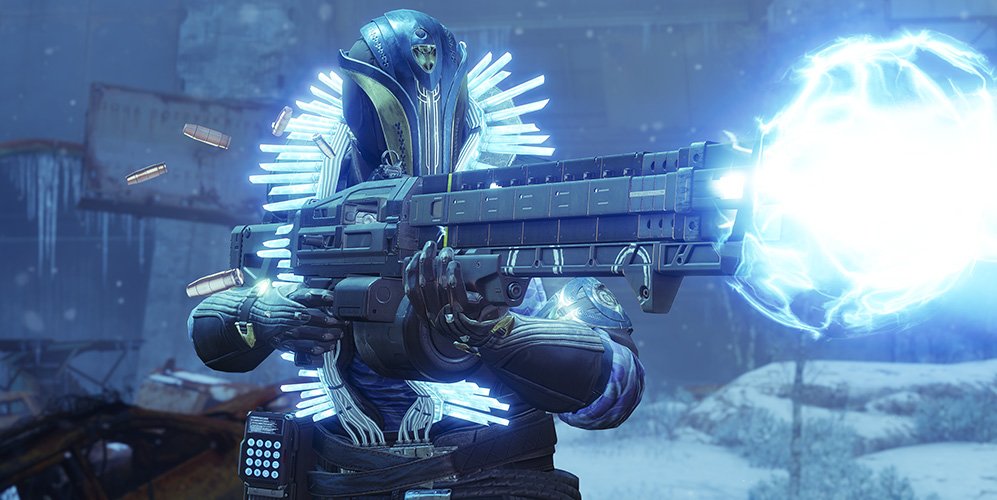
Each month in the 'now playing' section of PC Gamer magazine we spend a few pages discussing the games we've been playing recently—good or bad. Sometimes they are old games we've been meaning to go back and try, like Titanfall 2, sometimes they're new or living games like Destiny 2. Sometimes you might get a story about alien contact and burning space stations, like Andy's adventure in Elite Dangerous this month. Let us know what you're playing at the moment in the comments.
A fabled journey in Destiny 2—Phil Savage
Destiny 2’s PvP is a bit of a mess—neglected, unbalanced and with a bizarre idea of what constitutes good matchmaking. That’s particularly true of competitive mode, which foregoes standard practices like placement matches or leagues in favour of resetting everyone each season and making all players, whatever their skill, scramble from the bottom afresh.
At the same time, some of Destiny 2’s best guns require players to reach Fabled—the midpoint on the competitive ranking system. I have never done this, because, despite having played a lot of Destiny 2, I’ve barely touched competitive at all. This season, though, Bungie has doubled the number of rank points you gain (or lose) from wins or losses. Theoretically, it should take half as many games to reach Fabled. I’m going to give it a shot.
It’s not an auspicious start. In my first week, I win one game and lose two, resetting me back to zero points. It’s not a complete waste, though. As long as you play three games in a week, you’re gifted a bunch of rank points at the start of the next. It’s progress of a sort.
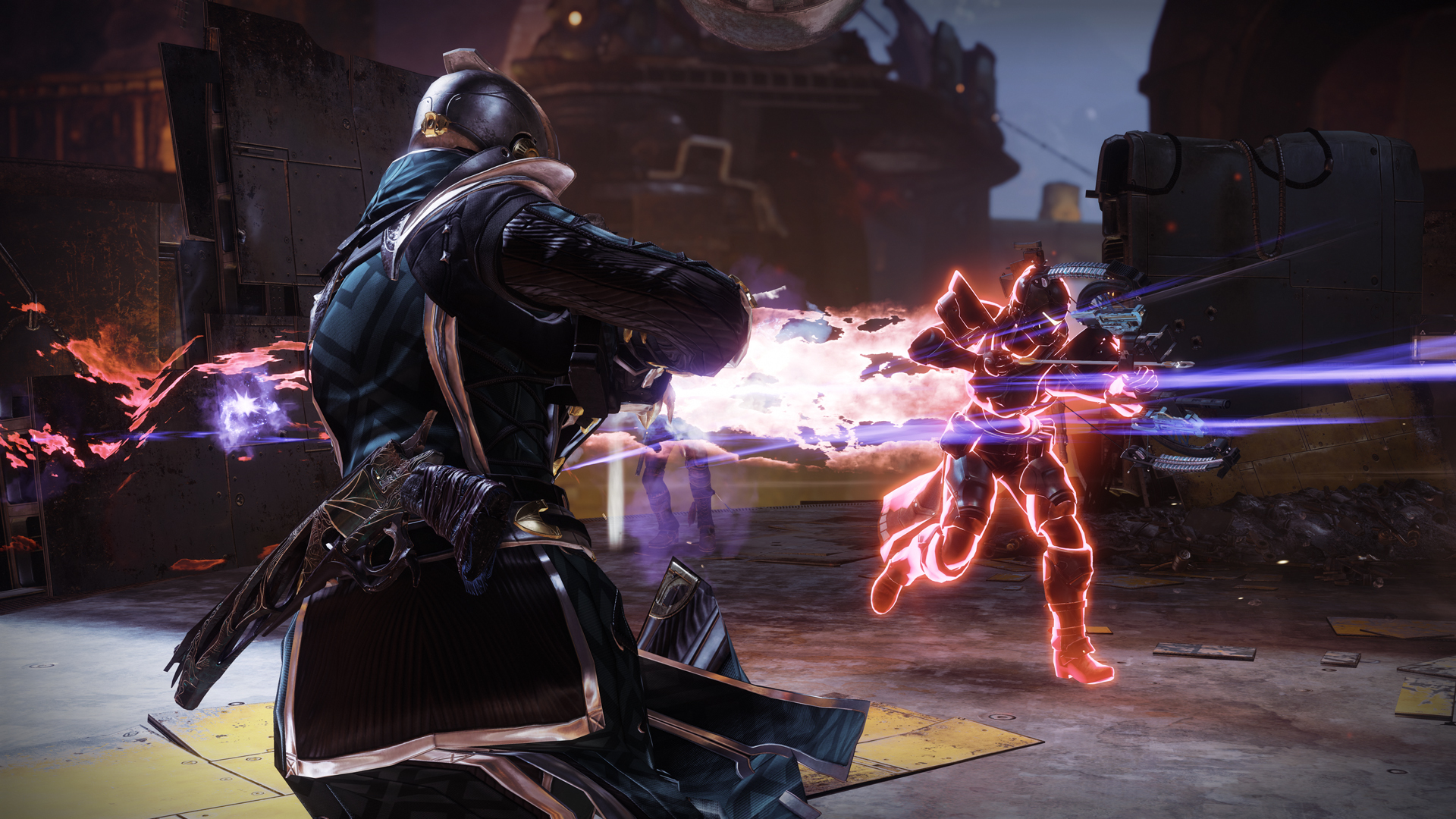
I return the next week and collect my bonus points. I’m now ranked Guardian III—a whole 7.6 per cent of the way to my target! And I’ve not even done anything. I win my next game, and the game after. And then I keep winning. I start to wonder if I am actually the best competitive Destiny 2 player in the world without even knowing it? By just my tenth game I’m Brave III, which is nearly halfway to my goal.
Game 11. The opposition are all in the same clan. They’re going to be more organised and more strategic than my group of random players. Still, I’ve beaten clans before, we just need to... oh. One of our teammates has quit the match. We’re screwed.
I am undone. I lose three of my four next games. Then, when I log in the next week, things have somehow gotten worse. Bungie has launched a new event, The Revelry, and with it a special tonic that makes your grenade ability recharge incredibly fast. With a full set of the event armour, you get a new grenade every couple of seconds. It’s a disaster. I lose my next four games in a row, wiping my reset bonus and then some.
The biggest gaming news, reviews and hardware deals
Keep up to date with the most important stories and the best deals, as picked by the PC Gamer team.
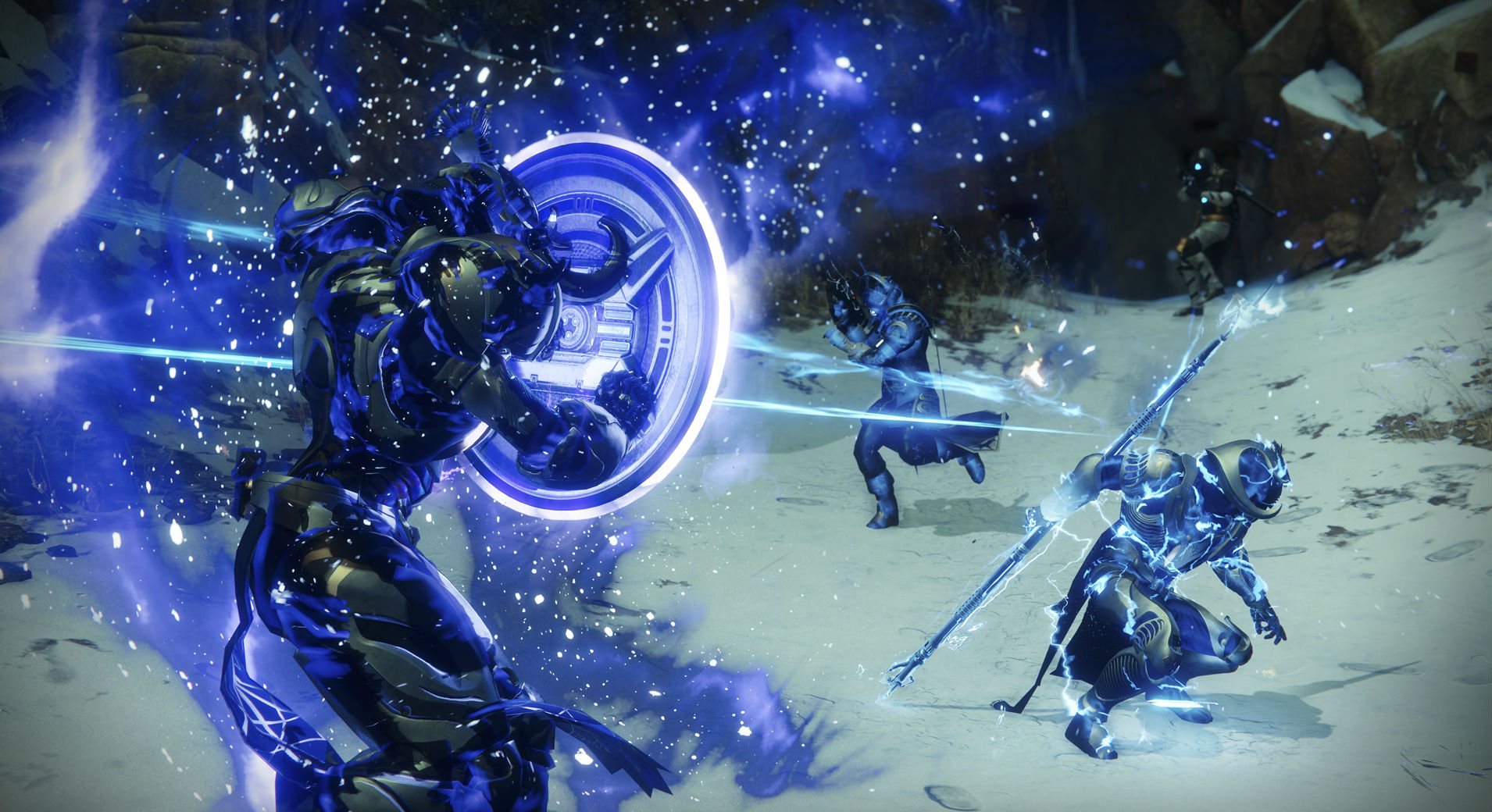
As a Warlock, my character doesn’t have the best grenades, but I realise that a significant number of players struggle to realise when they’re standing in an arc pulse grenade. Pretty soon I’m carpet bombing objectives with area-of-effect lightning death.
It... works, mostly. There are still losses, but also wins that only happened because I threw so many grenades that the other team couldn’t capture the middle point.
In the second week of The Revelry, after 47 total competitive games, I finally reach my total. Some might say I’ve cheesed my way to my pinnacle rewards. But do I feel bad? No. I don’t.
Enjoying dilapidated sights in Kentucky Route Zero—Malindy Hetfield
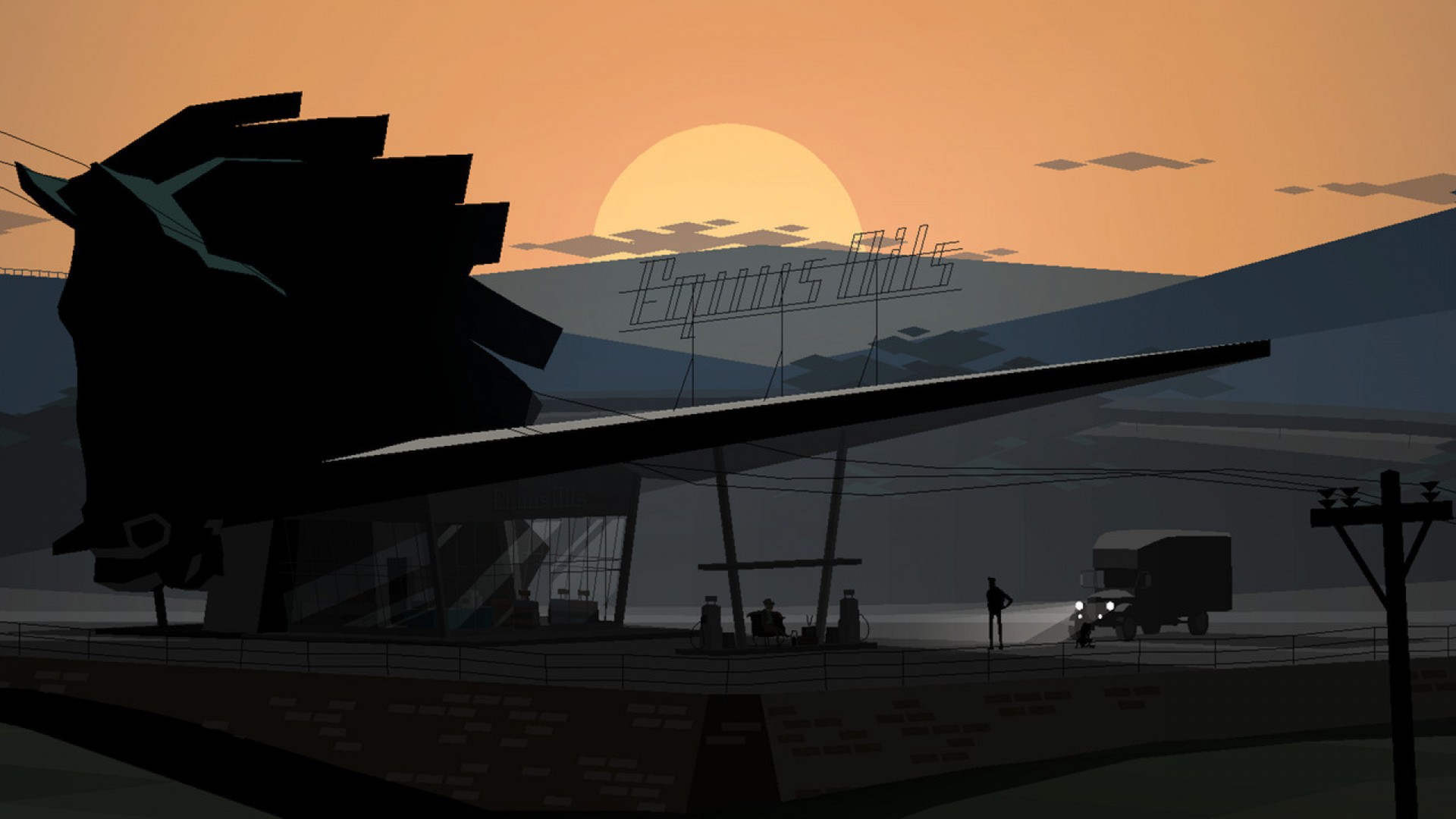
I’ve never played Kentucky Route Zero before, out of fear of falling in love with a work in progress. Time passed, my mind changed and the end of this strange painting of a game finally drew near.
Many games take place at night, the time of day when monsters come out or criminals go and do their dirty work. But so many people work at night and see a completely different side of the world, where everything seems much more subdued and people perhaps feel free to act a little differently as well.
Add to that how Kentucky Route Zero takes place in those tiny communities and lonely houses away from the main roads of America—locations that have inspired games like Where the Water Tastes Like Wine or much of Neil Gaiman’s work—and suddenly the supernatural and just plain eerie doesn’t feel so unlikely anymore.
I think my task is to deliver something, but everything in this game is geared towards distraction. A ghost asked me to fix her TV set when all I needed were directions.
The first thing I can think of, looking at her lonely house high up on a hill, is of course, what else is she going to do all by herself than watch television?
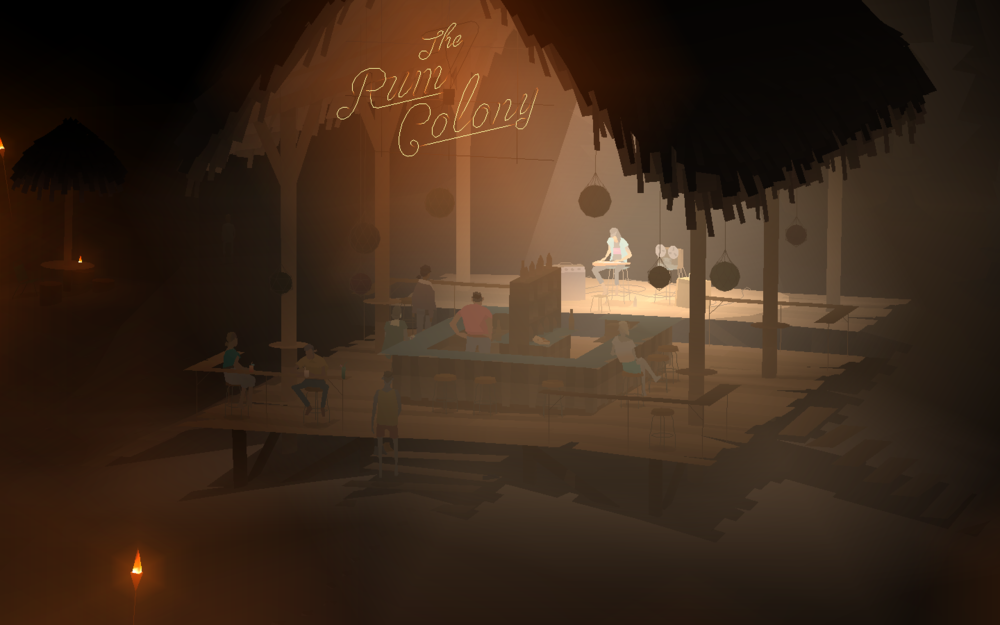
Elsewhere, a group of bears inhabits their own floor of an office building. Bears are large creatures, they take up a lot of space and they take ages at the printer. Best give them their own floor. Games can be very selective about what I’m supposed to find strange—zombies and gelatinous masses with eyes are standard fare now—but KRZ has this fascinating way of making me aware of the strangeness of my surroundings, simply by never remarking on them at all. Random acts of kindness pave my way. Anywhere I arrive I take the time for a quick chat, just as you would do as a lonely soul on the road, getting sparse social interaction whenever possible.
Rather than follow the plot, I do nothing but cruise around the simple map during the endless night, listening to the satisfying hum of my truck’s engine until out of nowhere a building appears.
I follow strange noises inside or peek through windows and encounter many a lonely soul continuing to do their work even when their body has long stopped moving. A bleak American Dream.
I rescued people from a burning space station in Elite Dangerous, but should I have?—Andy Kelly
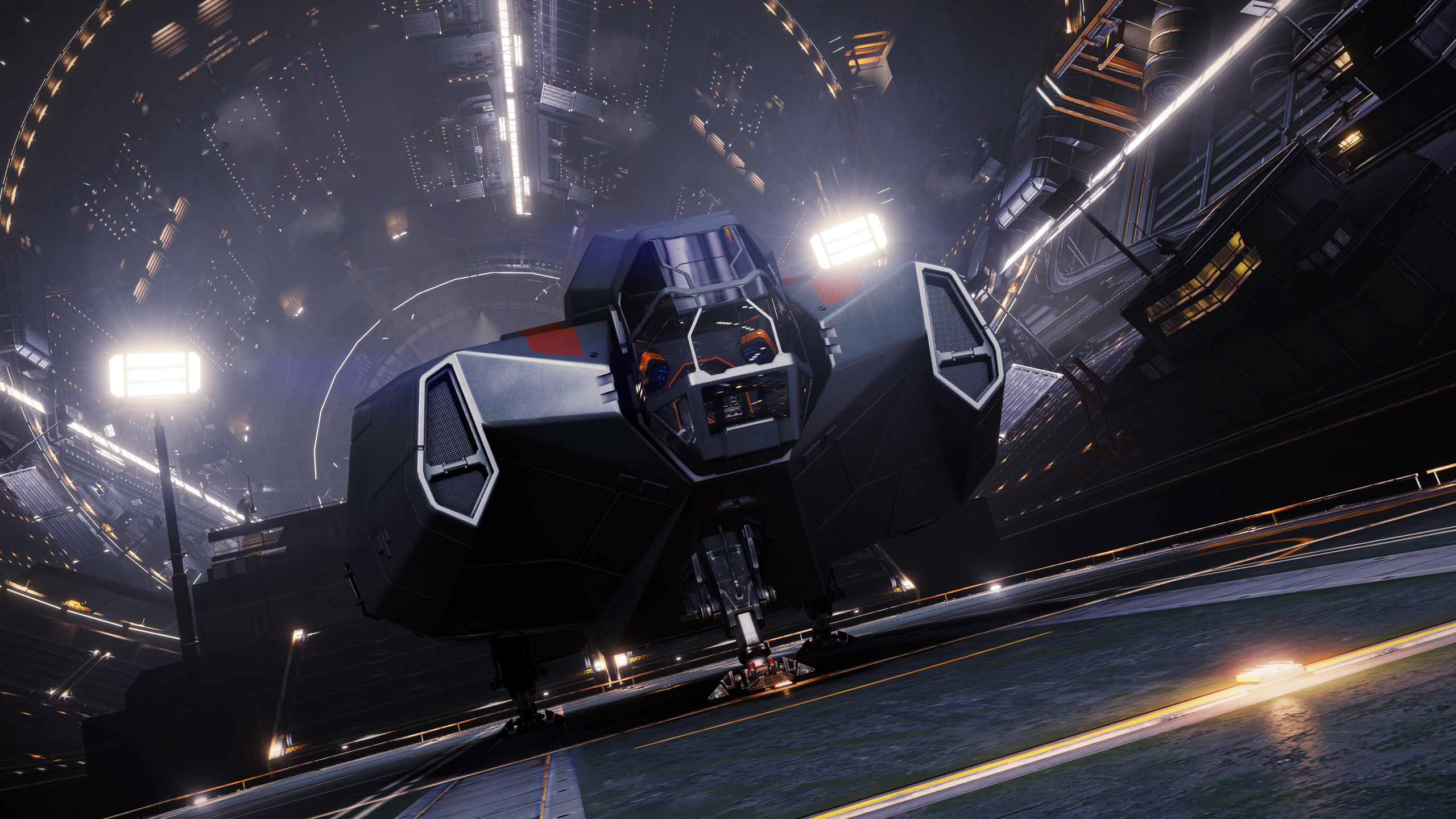
It’s been a while since I last played Elite Dangerous, which makes the moment when I jump into a random system and find a burning starport pretty shocking. As I approach, the flight controller warns me that the station is in danger. The advertising billboards that normally guide pilots through the ‘mail slot’ as they dock have been replaced with flashing red signs saying “EVACUATE”. And I notice strange green splodges on the exterior walls, suggesting that the Thargoids—mysterious aliens slowly making their presence felt in Elite’s galaxy—are responsible.
Curiously, I still have the option to dock. The flight controller cautions me about high temperatures inside the station as I fl y closer to the entrance, and I can see why. The cavernous interior is glowing hot with flames, and huge chunks of debris are floating inside, making my route to the landing pad extra tricky. The temperature gauge in my cockpit rises steadily as I touch down, and I fire up the mission board. Thousands of people are still stranded in the station, and because I have some passenger cabins in my Asp Explorer, I decided to ferry them to safety.
A large Federation rescue ship is waiting nearby, but first I have to make it out of this station alive. As I approach the mail slot my ship is running at 200 per cent temp, damaging my hull and internals. I should probably bring some heat sinks next time to reduce the stress on my ship. But I make it out and I drop the refugees off at the rescue ship, earning some CR and Rep with the Fed. I did this out of the goodness of my heart, but payment is nice.
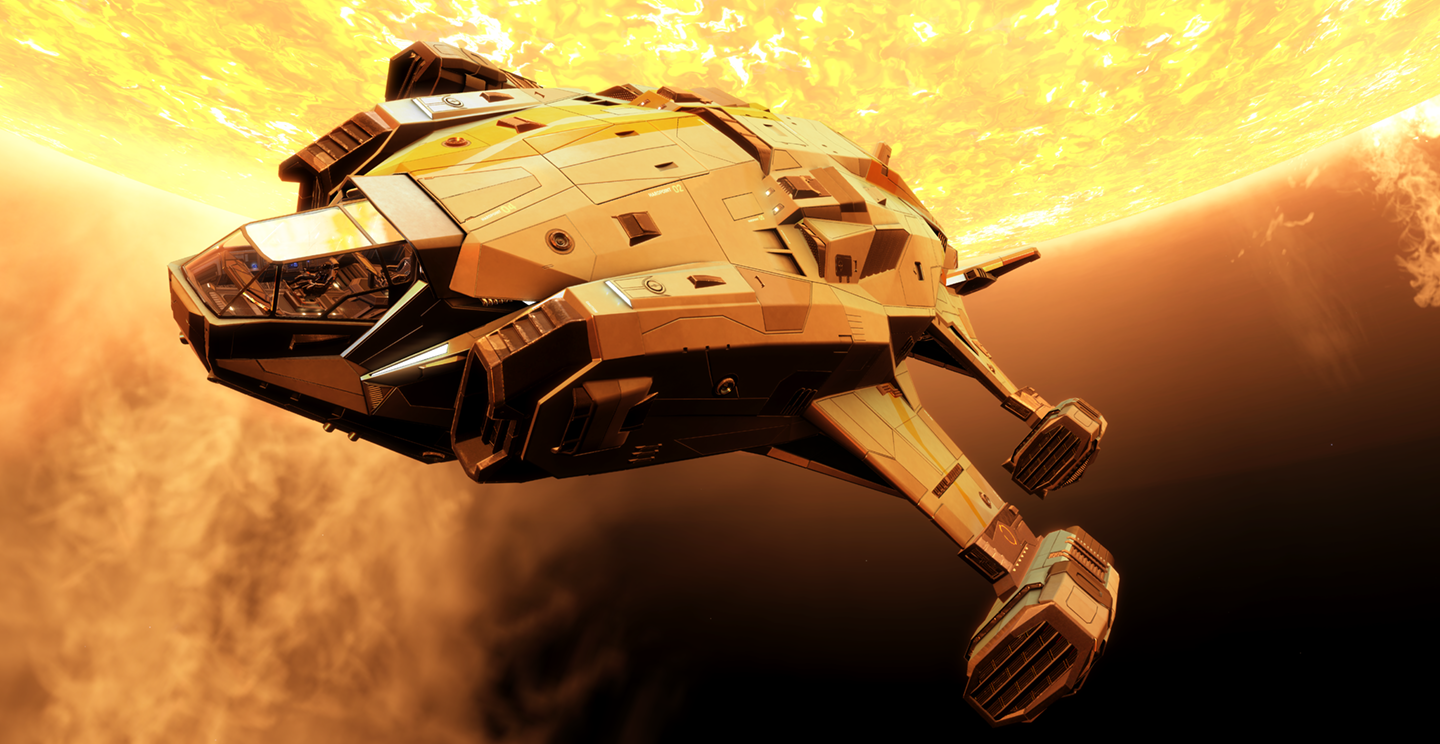
While the thrill of flying into the flaming station and rescuing people is way more exciting than the commodities trading I usually indulge in, I eventually get bored, and so I look at other ways I can help the stricken starport. I notice that there’s a huge demand for water, so I fly to a nearby station, load up with about 80 tonnes of the life-saving liquid, and sell it to them.
Later, when I’m back on my usual trading runs in a nearby system, I’m suddenly and violently yanked out of hyperspace. I’m not sure what’s happening and my ship mysteriously powers down. Then I see them above my canopy—three sinister, green-tinged Thargoid ships, just hovering, watching. My ship groans back to life and I slam my thrusters, worried the alien invaders will attack.
But they don’t. It seems they’re just observing me. It makes me wonder if I’ve made a powerful enemy by helping those refugees. I don’t know where this Thargoid storyline is going, but the way Frontier has subtly woven it into the galaxy in Elite is very well done. Accidentally stumbling into that burning station was a genuinely exciting (and eerie) moment, because I had no idea this stuff had been put into the game.
Seeing the Star Wars potential in Titanfall 2—Jeremy Peel
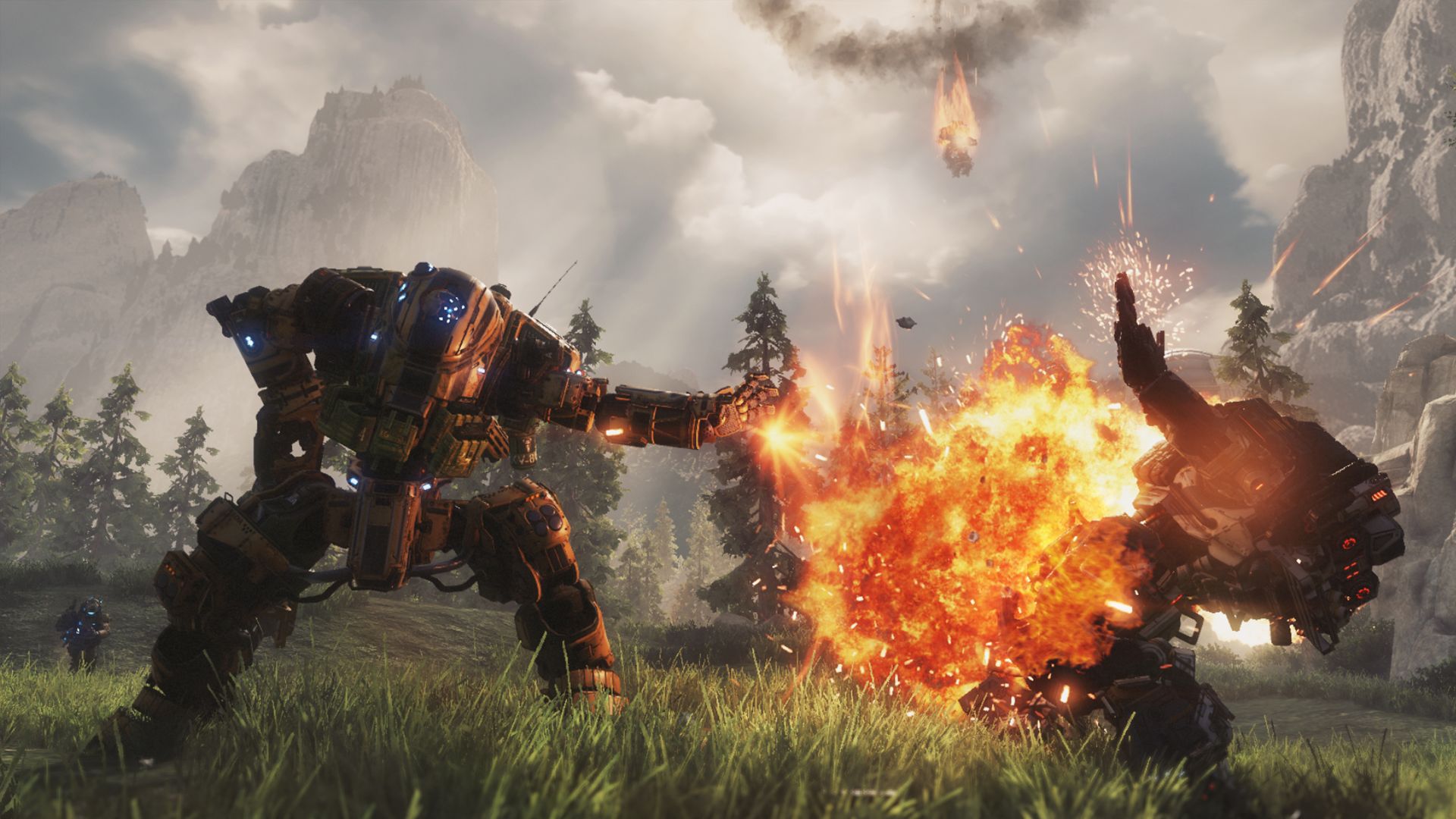
The reveal trailer for Jedi: Fallen Order is full of minor feats of impossibility. The protagonist leaps great chasms, runs on vertical surfaces, and loosens the sturdy metal panels of a spaceship using only the spiritual spanner in his mind. I’ve played power fantasies like this before and am bracing for it to feel more like Jedi: Fallen Over under my fumbling fingers.
Or at least I was until I went back to Titanfall 2. Respawn’s only single- player campaign to date is the sensible place to look for pointers on how its Star Wars game might play, and it bodes well for Fallen Order’s acrobatics. I really like how forgiving Titanfall is of my jumps and wall runs—matching my intentions, rather than punishing me for putting a foot wrong or botching a landing. There’s no fall damage, something I’ve confirmed through empirical, if accidental, testing. I drift unhurriedly through the air like Mary Poppins, and the double jump allows me to correct my direction mid-flight—so I don’t necessarily even need to know where I’m going before I leap. It’s a set of systems designed to deliver on the dream of me being a Pilot, a mech-melding parkour sharpshooter, and isn’t conditional on me actually knowing how to do those things.
Other studios have made us feel special, of course—it’s almost the industry standard to baby us into believing we’re brilliant. But Respawn’s magic is to pair that feeling of power with a terrible sense of vulnerability.
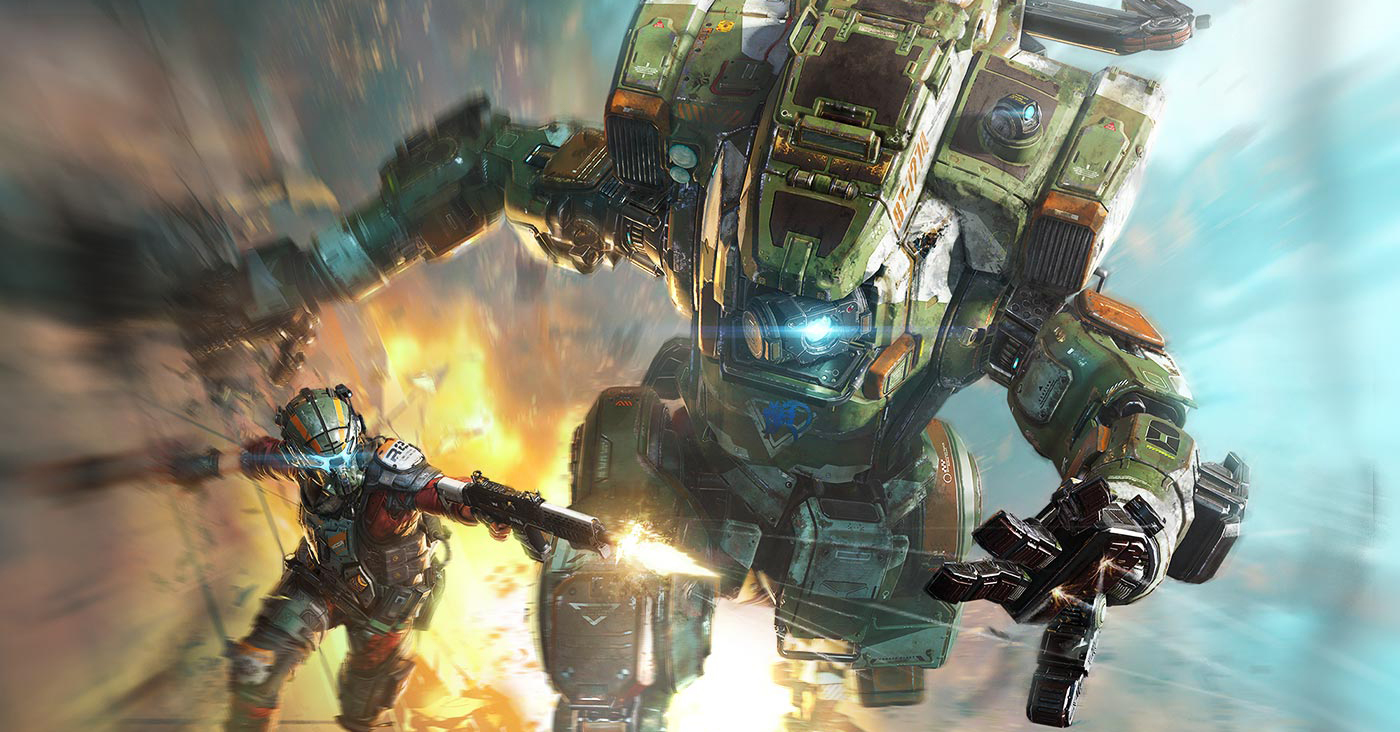
As a Pilot, I can feel all-too- squishable—especially on occasions where I’m caught out of my titan as the mechs start fighting above my flimsy head. Turns out I rarely feel more connected to a world as when I’m at risk of being mushed into it. Yes, Titanfall 2 is a power fantasy, but it doesn’t compromise on the very human experience of absolutely shitting your pants.
It’s that human connection I’m hoping Respawn will bring to Fallen Order. Whisper it, but it’s no real loss if the studio leaves the Titanfall universe behind—beyond the titans themselves, there’s nothing particularly distinctive about it. But the way Respawn tells a story is second to none. If I simply inform you that your enemies in Titanfall 2 are building, essentially, multiplayer arenas to practice killing you in, it’s an interesting titbit. But the way Respawn does it—pulling you all the way along the production line, piecing together an Ikea colony before your eyes, and then leaving you to fight in the training ground you’ve just seen fabricated—is devastating, bringing home the odds against your frontier militia. Swap those rebels for the downtrodden Jedi and a world as deep and beloved as Star Wars, and I believe Respawn can do something extraordinary.

Phil has been writing for PC Gamer for nearly a decade, starting out as a freelance writer covering everything from free games to MMOs. He eventually joined full-time as a news writer, before moving to the magazine to review immersive sims, RPGs and Hitman games. Now he leads PC Gamer's UK team, but still sometimes finds the time to write about his ongoing obsessions with Destiny 2, GTA Online and Apex Legends. When he's not levelling up battle passes, he's checking out the latest tactics game or dipping back into Guild Wars 2. He's largely responsible for the whole Tub Geralt thing, but still isn't sorry.

